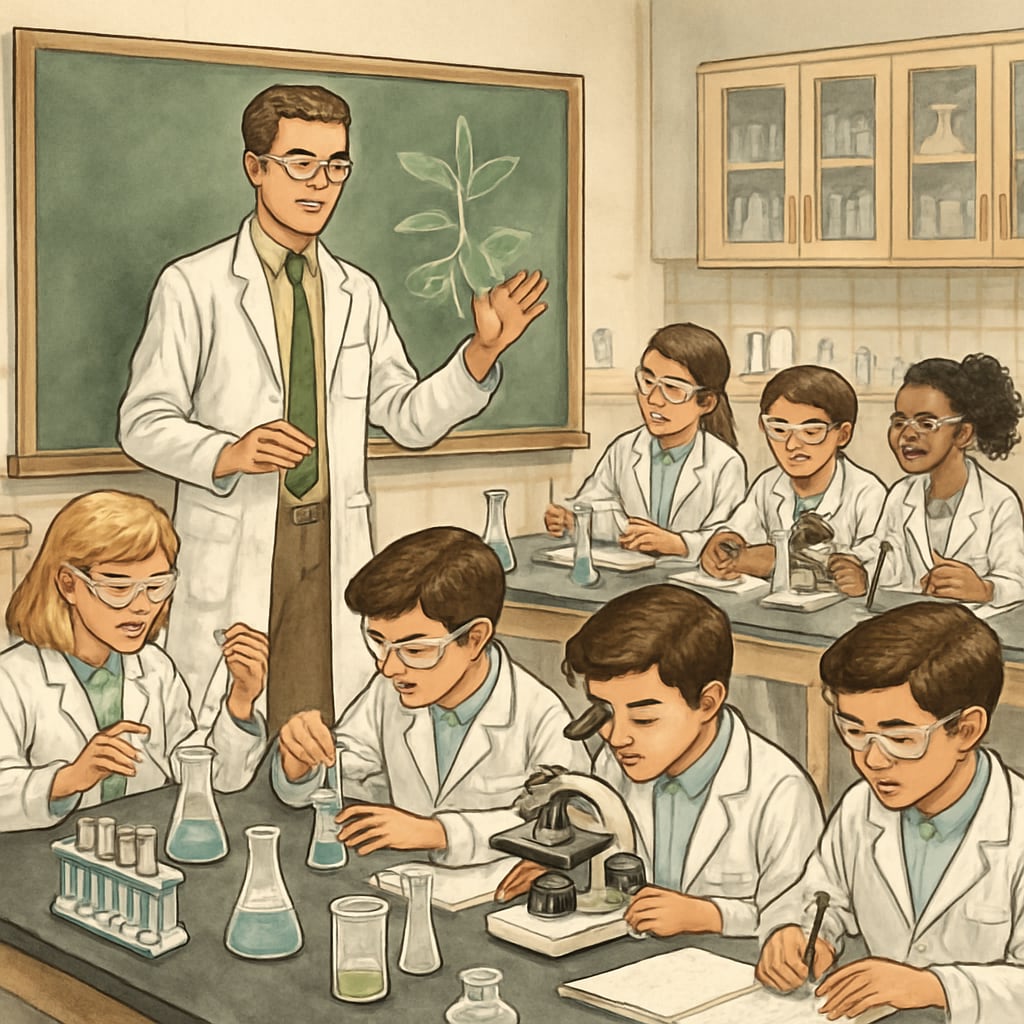For biology majors seeking new horizons, transitioning into education offers a fulfilling and impactful career path. Combining a biology background with an education master’s degree, graduates can leverage their scientific expertise to inspire the next generation in K12 classrooms. This article explores the feasibility and benefits of this career change while offering actionable strategies for making the leap from the lab to the classroom.
Why Biology Majors Excel in Education
Biology majors bring a unique set of skills and perspectives to the education field. Their scientific training fosters critical thinking, problem-solving abilities, and a deep understanding of evidence-based reasoning—all essential attributes for effective teaching. Furthermore, biology graduates are well-equipped to teach STEM (Science, Technology, Engineering, and Mathematics) subjects, which are increasingly in demand in schools worldwide.
In addition, their experience with laboratory experiments can make science lessons more engaging and practical for students. For example, biology majors can incorporate hands-on activities such as dissections, ecosystem modeling, or microbiology demonstrations to enrich the learning experience. These interdisciplinary approaches not only captivate students but also reinforce concepts through experiential learning.

Steps to Transition from Biology to Education
Making a career shift to education involves strategic planning and preparation. Below are key steps for biology majors interested in pursuing this path:
- Earn an Education Master’s Degree: Most schools require formal teaching credentials, which can be obtained through a master’s program in education. These programs often include coursework in pedagogy, curriculum development, and classroom management, along with student teaching opportunities to gain practical experience.
- Obtain Certification: Depending on your location, becoming a certified teacher is typically mandatory. Research the certification requirements in your area, which may include exams like the Praxis or state-specific tests, and complete any necessary prerequisites.
- Build Experience: Volunteering, tutoring, or working as a teaching assistant can provide valuable exposure to classrooms and help you refine your teaching skills.
- Leverage Your STEM Background: Highlight your biology expertise when applying for positions, especially in STEM-focused roles. Schools often prioritize candidates who can advance their science curricula.
By following these steps, biology majors can navigate the transition smoothly and position themselves as competitive candidates in the education sector.

The Value of Interdisciplinary Skills in K12 Education
One of the most significant advantages biology majors bring to K12 education is their interdisciplinary skill set. Their ability to connect biological concepts with broader scientific principles, environmental awareness, and even ethical considerations enriches classroom discussions and fosters a holistic understanding of science.
For example, biology majors can integrate topics such as climate change, biodiversity, or medical advancements into their lessons, showing students the real-world applications of science. This not only sparks curiosity but also prepares students for future STEM careers, addressing the growing need for workforce-ready individuals in science-related fields.
Additionally, biology graduates often excel in creating inclusive and diverse learning environments. Their interdisciplinary background encourages cultural sensitivity and adaptability, qualities that are vital in accommodating students from various backgrounds and learning styles.
Challenges and How to Overcome Them
Although transitioning to education offers numerous benefits, biology majors may face challenges such as adjusting to classroom dynamics or mastering teaching methodologies. Here are strategies to overcome these obstacles:
- Seek Mentorship: Connect with experienced educators who can provide insights and guidance on navigating the profession.
- Invest in Professional Development: Attend workshops, webinars, and conferences to enhance your teaching skills and stay updated on educational trends.
- Embrace Feedback: Regularly seek feedback from peers, mentors, and students to refine your teaching practices and grow as an educator.
By addressing these challenges proactively, biology majors can build confidence and thrive in their new roles as educators.
In conclusion, transitioning from biology to education is a viable and rewarding career path. With the right preparation, biology graduates can leverage their scientific expertise to make a meaningful impact in K12 classrooms, inspiring students and advancing STEM education. Whether through hands-on experiments or interdisciplinary lessons, their contributions can shape the future of science education.


